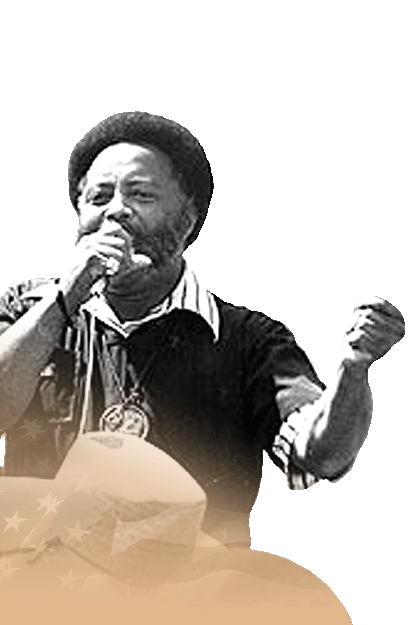 |
 |
 |
 |


| ||||||
|
For almost 50 years, Rev. Hosea Williams aggressively, but non-violently protested racial discrimination in some of the most dangerous confrontations of the Civil Rights Movement. The World War II veteran joined the National Association for the Advancement of Colored People (NAACP) after he was almost killed for drinking from a "whites only" water fountain in Americus, Georgia. In 1963 Williams became one of Martin Luther King, Jr.'s most trusted lieutenants in the Southern Christian Leadership Conference (SCLC), earning a reputation as "a battering ram for the movement." He helped carry out the voter registration initiatives during the 1964 Freedom Summer. Then on March 7, 1965 - "Bloody Sunday" - Williams and fellow activist John Lewis withstood beatings by police at the Edmond Pettus Bridge as they attempted to lead the Selma to Montgomery March. President Lyndon Johnson responded by signing the Voting Rights Act. Williams became a State of Georgia representative (1974-1984). In 1985 he was elected to a term with the Atlanta City Council and later served for several years as a DeKalb County, Georgia commissioner. In 1987, Williams confronted the Ku Klux Klan as he led a march of 20,000 people to protest racism in segregated Forsyth County, Georgia. Williams won praise over the years for his Hosea Feed the Hungry and Homeless organization, established in 1971. After his abandoned mother died during childbirth, Hosea Williams was raised by his grandparents. He never knew his father. At 14, Williams left home to escape being lynched because of his friendship with a white girl. During World War II, he served in Europe as a staff sergeant in an all black unit. Williams was the only member of his unit to survive a Nazi bombing. He spent a year in a European hospital before returning to the United States with a Purple Heart and a permanent limp. He finished his high school education at the age of 23 and earned a bachelor's degree in Chemistry from Morris Brown College and a Master's degree from Atlanta University. Before joining the movement full time, Williams was the first African-American research chemist hired by the federal government in the Deep South. Williams and his wife Juanita Terry Williams raised five children. Mrs. Williams, also an activist and former state representative, died in August 2000. |